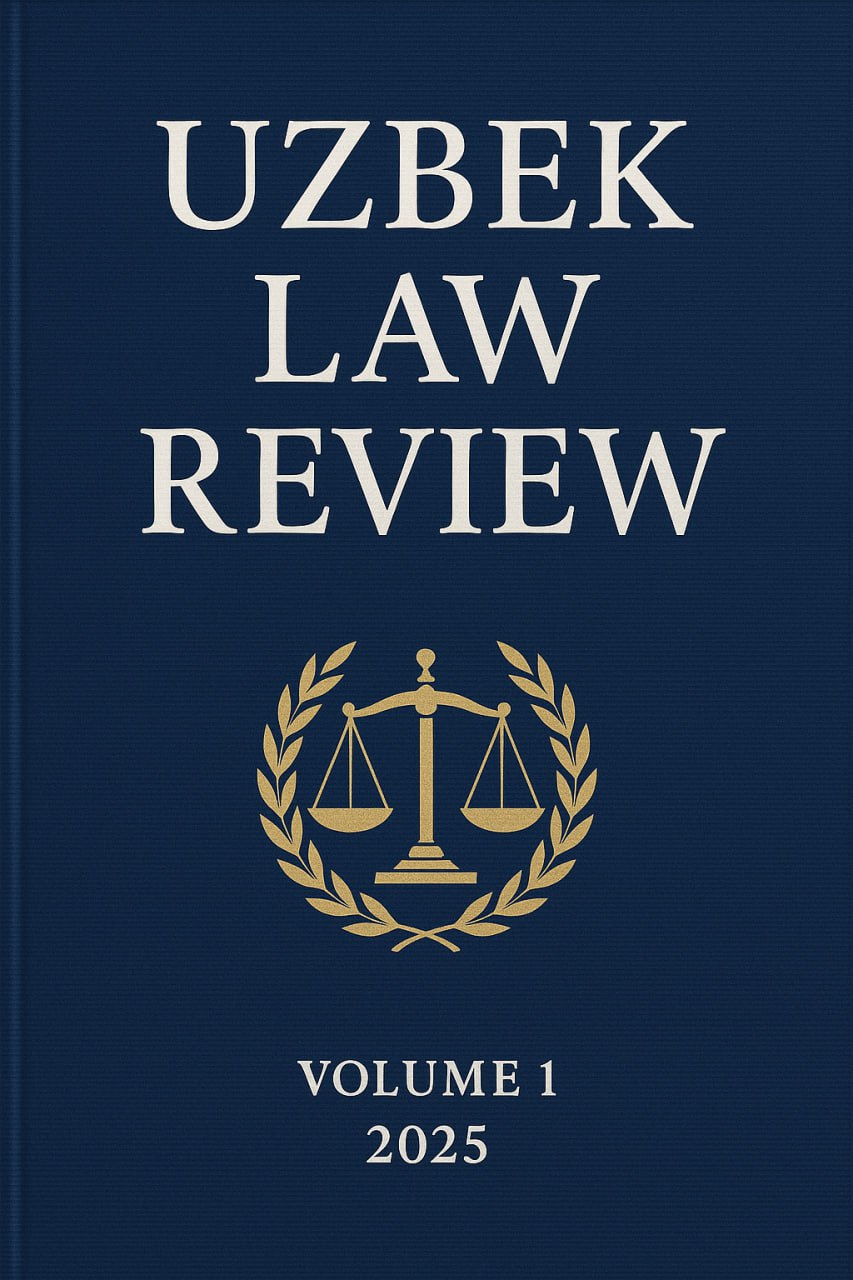SOME COMPARISON OF EMPLOYMENT LAW IN UZBEKISTAN AND JAPAN
Keywords:
employment law, Uzbekistan Labor Code, Japan Labor Standards Act, working hour’s regulation, minimum wage, comparative labor law, legal guarantees in employment.Abstract
This article presents a comparative analysis of the employment legislation of Uzbekistan and Japan, focusing on key aspects such as working hours, minimum wage, and legal guarantees. Drawing upon statutory provisions, official statistics, and academic literature, the paper highlights both convergences and divergences in the regulatory frameworks of the two countries. Uzbekistan's approach emphasizes centralized regulation and state-led policy-making, whereas Japan demonstrates a more decentralized and flexible system, particularly in wage determination and employer autonomy. The article also examines the socio-economic contexts that shape labor law evolution in both nations, including demographic shifts, economic structures, and cultural attitudes toward work. Through this comparative study, the article aims to contribute to a deeper understanding of how legal systems respond to the challenges of balancing economic efficiency with social protection in diverse national contexts.
Downloads
References
1. Telegram Channel of the Ministry of Employment
and Poverty Reduction of the Republic of Uzbekistan. (2024, April 21). Retrieved from https://t.me/mehnatvazirligi/17776
2. JILAF – Japan International Labour Foundation. (2024, September 17). Japan labour updates. Retrieved from https://www.jilaf.or.jp/en/news/20240917-4736/
3. Musakhonovich, M. M., Esirgapovich, E. A., Jaelani, A. K., Khairuldin, W. M. K. F. W., & Luthviati, R. D. (2024). The protection of labor rights on the court system. Journal of Human Rights, Culture and Legal System, 4(3), 742–764.
4. Sakuraba, R. (2024). Labour law in a civil law country. In Research Methods in Labour Law (pp. 234– 254). Edward Elgar Publishing.
5. Mamasharifovich, B. H. (2025). Legal regulation of working hours in the Republic of Uzbekistan and some foreign countries. International Journal Of Law And Criminology, 5(02), 29–35.
6. Takami, T. (2019). Current state of working hours and overwork in Japan Part I: How has it changed over the years. Japan Labor Issues, 3(16), 18–21.
7. Abdullaeva, R. N. (2022). Legal regulation of the salary of workers in the public sphere in the Republic of Uzbekistan. Central Asian Academic Journal of Scientific Research, 2(5), 399–405.
8. Kuroda, S., & Yamamoto, I. (2012). Impact of overtime regulations on wages and work hours. Journal of the Japanese and International Economies, 26(2), 249– 262.
9. Safoeva, S. (2024). Barriers to women’s participation in the formal labor market in Uzbekistan (Doctoral dissertation, Columbia University), p.47.
10. Son, K., & Böger, T. (2021). The inclusiveness of maternity leave rights over 120 years and across five continents. Social Inclusion, 9(2), 275–287.
11. Avezov, U. (2022). The role and importance of trade unions as an institution of civil society in Uzbekistan. The American Journal of Political Science Law and Criminology, 4(01), 19–26.
12. Inoe, S., & Jose, A. V. (2002). Japanese trade unions and their future: Opportunities and challenges in an era of globalization. In Organized Labour in the 21st Century (pp. 23–61).
13. Ismoilov, S. A. (2020). The last tendencies of liberalization of labor and employment legislation of the Republic of Uzbekistan. JournalNX, 539–547.
14. Kawaguchi, A. (2019). Maternity harassment in Japan: Why do regular employees have higher risk than non-regular employees do? Japan and the World Economy, 49, 84–94.
15. United Nations. (n.d.). Eradication of forced labour – striking example of the political will. Retrieved from https://www.un.int/uzbekistan/news/eradicationforced-labour-striking-example-political-wil
16. Sulaymanov, O., & Rasulov, J. (2021). Abolition of forced labour: Case of Uzbekistan. Turkish Journal of Computer and Mathematics Education, 12(4), 1078–1089.
17. Nippon.com. (2024). White Paper on overwork in Japan shows record rise in recognized work-related mental health issues. Retrieved from https://www.nippon.com/en/japan-data/h02171/
18. Kanai, A. (2009). “Karoshi (work to death)” in Japan. Journal of Business Ethics, 84, 209–216.
19. Asgari, B., Pickar, P., & Garay, V. (2016). Karoshi and Karou-jisatsu in Japan: Causes, statistics and prevention mechanisms. Asia Pacific Business & Economics Perspectives, 4(2), 49–72.
20. North, S., & Morioka, R. (2016). Hope found in lives lost: Karoshi and the pursuit of worker rights in Japan. Contemporary Japan, 28(1), 59–80.







